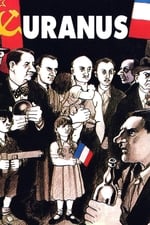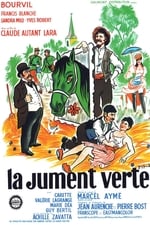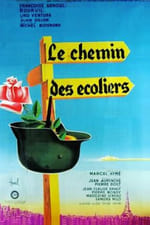Personal Info
Known For Writing
Known Credits 38
Gender Male
Birthday March 29, 1902
Day of Death October 14, 1967 (65 years old)
Place of Birth Joigny, Yonne, France
Also Known As
- -
Content Score
100
Yes! Looking good!
Login to report an issue
Biography
Marcel Aymé (29 March 1902 – 14 October 1967) was a French novelist and playwright, who also wrote screenplays and works for children.
Marcel André Aymé was born in Joigny, in the Burgundy region of France, the youngest of six children. His father, Joseph, was a blacksmith, and his mother, Emma Monamy, died when he was two years old, after the family had moved to Tours. Marcel was sent to live with his maternal grandparents in the village of Villers-Robert, a place where he would spend the next eight years, and which would serve as the model for the fictitious village of Claquebue in what is perhaps the most well-known of his novels, La Jument verte. In 1906 Marcel entered the local primary school. Because his grandfather was a staunch anti-clerical republican, he was looked down upon by his classmates, many of whose parents held more traditional views. Accordingly, Marcel was not baptized before reaching the age of eight, nearly two years after the death of his grandfather in 1908. Orphaned once more when his grandmother died two years later, he briefly lived with other family members before moving to Dole, a small town of the Franche-Comte region, to stay with an aunt and attend the Collège de l'Arc, where he demonstrated more ability in mathematics than in literature. His years at school there were an unpleasant experience he would never look back on fondly.
Despite ongoing issues with his health that had begun when he was a child, Aymé was able to perform his military service, which began in 1919, as part of an artillery unit in the occupied Rhineland. In 1923 he moved to Paris where he worked unsuccessfully at a bank, an insurance company, and as a journalist. Though he failed in his career as a reporter, his stint at the newspaper allowed him to discover his love of writing.
His first published novel was Brûlebois (1926), and in 1929 his La Table aux crevés won the Prix Renaudot. After the great success of his novel La Jument verte (1933), translated into English as The Green Mare, he concentrated mostly on writing and published children's stories, novels, and collections of stories. In 1935 he also started writing movie scripts. In theater, Marcel Aymé found success with his plays Lucienne et le boucher, Clérambard (1949), a farce, and Tête des autres (1952), which criticized the death penalty.
He died in 1967 and was buried in the Cimetière Saint-Vincent in the Montmartre Quarter of Paris.
One of Aymé's most famous short stories is Le passe-muraille or "The Walker-Through-Walls". At the age of 42, Dutilleul suddenly discovers that he has "the remarkable gift of being able to pass through walls with perfect ease". What begins as a novelty that gives him pleasure ends up pushing Dutilleul toward ever more sinister pursuits.
Visitors to Paris can see a monument in his honor at Place Marcel-Aymé, in the Montmartre Quarter. The statue is based upon his short story "Le passe-muraille" ("The Walker through Walls").
Source: Article "Marcel Aymé" from Wikipedia in English, licensed under CC-BY-SA 3.0.
Marcel Aymé (29 March 1902 – 14 October 1967) was a French novelist and playwright, who also wrote screenplays and works for children.
Marcel André Aymé was born in Joigny, in the Burgundy region of France, the youngest of six children. His father, Joseph, was a blacksmith, and his mother, Emma Monamy, died when he was two years old, after the family had moved to Tours. Marcel was sent to live with his maternal grandparents in the village of Villers-Robert, a place where he would spend the next eight years, and which would serve as the model for the fictitious village of Claquebue in what is perhaps the most well-known of his novels, La Jument verte. In 1906 Marcel entered the local primary school. Because his grandfather was a staunch anti-clerical republican, he was looked down upon by his classmates, many of whose parents held more traditional views. Accordingly, Marcel was not baptized before reaching the age of eight, nearly two years after the death of his grandfather in 1908. Orphaned once more when his grandmother died two years later, he briefly lived with other family members before moving to Dole, a small town of the Franche-Comte region, to stay with an aunt and attend the Collège de l'Arc, where he demonstrated more ability in mathematics than in literature. His years at school there were an unpleasant experience he would never look back on fondly.
Despite ongoing issues with his health that had begun when he was a child, Aymé was able to perform his military service, which began in 1919, as part of an artillery unit in the occupied Rhineland. In 1923 he moved to Paris where he worked unsuccessfully at a bank, an insurance company, and as a journalist. Though he failed in his career as a reporter, his stint at the newspaper allowed him to discover his love of writing.
His first published novel was Brûlebois (1926), and in 1929 his La Table aux crevés won the Prix Renaudot. After the great success of his novel La Jument verte (1933), translated into English as The Green Mare, he concentrated mostly on writing and published children's stories, novels, and collections of stories. In 1935 he also started writing movie scripts. In theater, Marcel Aymé found success with his plays Lucienne et le boucher, Clérambard (1949), a farce, and Tête des autres (1952), which criticized the death penalty.
He died in 1967 and was buried in the Cimetière Saint-Vincent in the Montmartre Quarter of Paris.
One of Aymé's most famous short stories is Le passe-muraille or "The Walker-Through-Walls". At the age of 42, Dutilleul suddenly discovers that he has "the remarkable gift of being able to pass through walls with perfect ease". What begins as a novelty that gives him pleasure ends up pushing Dutilleul toward ever more sinister pursuits.
Visitors to Paris can see a monument in his honor at Place Marcel-Aymé, in the Montmartre Quarter. The statue is based upon his short story "Le passe-muraille" ("The Walker through Walls").
Source: Article "Marcel Aymé" from Wikipedia in English, licensed under CC-BY-SA 3.0.
Writing
Creator
|








